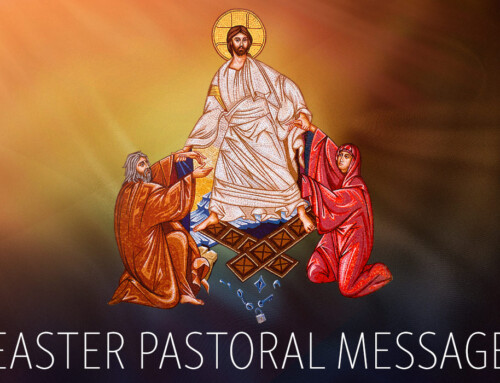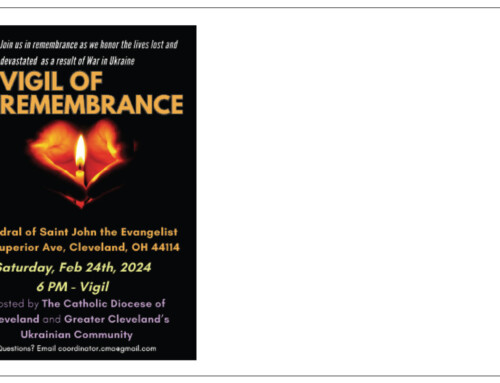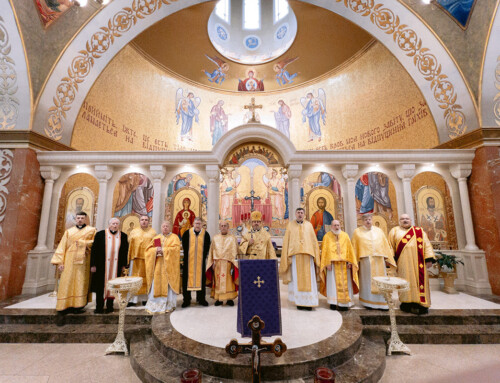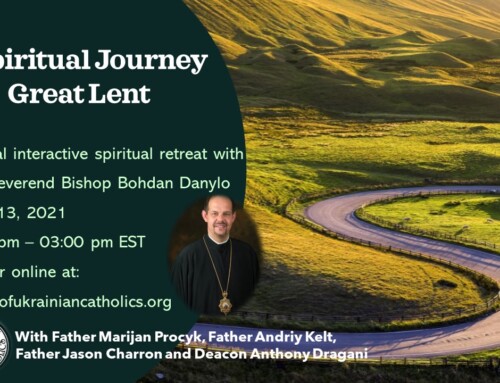Catechetical Sermon on the Divine Liturgy
#3 The Entrance Rite
Because we come to church today and wait in our place for the service to begin, it may sound strange to separate the gathering from the entrance, but in the very early Church—on the banks of the Mediterranean Sea with its milder yearlong weather—the people gathered in the courtyard of the church and then entered the building with the ministers together, so the two events of gathering and entering really were separate events, where one flowed from the other.
The earliest description of what we call today the “little entrance” goes back to the early part of the 6th century. The bishop and believers entered the church together while singing the Trisagion (Holy God, Holy Mighty, Holy Immortal . . . ), a hymn first documented in 451 at the Council of Chalcedon. In due time, possibly to make use of the time it took for people to get from the courtyard into the church and settle down, psalms were sung with refrains (evolving into a little office of three psalms already in use in Constantinople for votive processions). The hymn O Only Begotten Son was then sung to conclude the entrance rite, but was moved later to its present position. While credited by some to Athanasius of Alexandria, who may have written it sometime after the First Ecumenical Council of Nicaea in the 4th century, most credit it to the 6th century Byzantine Emperor Justinian the Great, possibly because he ordered it sung in all the churches of the Empire as part of the entrance rite of the Liturgy.
Arriving at a friend’s home, if we are invited for dinner, we may gather in a living room or family room to socialize, but at a certain point someone will indicate that “dinner is served.” In the same way, at the Divine Liturgy the priest usually prays (privately today), “Lord God our Master . . . grant that as we make our entrance, the holy angels may enter too, serving with us and joining in the praise of your goodness.” Humanity and the angels, the living and the dead, are all called to the gathering. The priest says, “Blessed is the entrance of your holy ones!” And the people reply, “Come, let us worship and fall down before Christ!” We are arriving, not simply from one place to another, we are coming from one dimension and entering another: the invisible realm of the Kingdom of God about to become physical among us.




